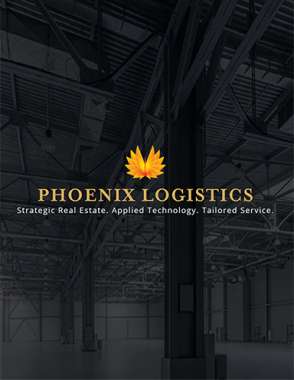Is One Fulfillment Center Enough For Your Ecommerce Brand?

Ecommerce and omnichannel retailers of all sizes must pursue strategies that shorten shipping windows while still managing costs.
Ecommerce
Ecommerce consumers want two-day shipping, and they want it to be affordable.
Amazon spent a decade normalizing the idea of fast and free shipping, and now online shoppers have the same expectation for all goods they buy online regardless of the seller.
As a result, ecommerce and omnichannel retailers of all sizes must pursue strategies that shorten shipping windows while still managing costs. In addition, serving a national U.S. customer base has become increasingly complex as shoppers buy more online than ever before.
Establishing a National Fulfillment Footprint
Unfortunately, there is no one-size-fits-all strategy for establishing a national fulfillment footprint, and determining the best method will depend heavily on the specifics of your retail business. Nevertheless, here are some of the most popular methods that online sellers use to reach the homes of national customers within two days.
A Centralized Fulfillment Center
Sellers committed to serving a national footprint with a single fulfillment or distribution center should look to purchase their warehouse in a centralized location that features ready access to interstate highways and railways, as well as easy pick-up access for any preferred parcel carriers. Trying to operate from or near the East Coast or West Coast will substantially increase costs to reach customers across the country within two days. A coastal fulfillment center will also increase the likelihood of missing that two-day window entirely.
Chicago is a popular choice for this type of facility, though many other Midwestern states also feature good locations for a centralized fulfillment operation. Centralized warehousing operations exist across many central U.S. states, such as Wisconsin, Iowa, Indiana, Texas, and more.
Some of the benefits associated with a centralized fulfillment center include:
- Lower total facility-related operating costs
- Reduced inbound shipping costs from suppliers (since all inventory goes to one place)
- Less fulfillment network complexity
- Easier standardization for operational processes
A Distributed Fulfillment Network
As sales and shipment volumes grow, most modern e-tailers have turned to a distributed fulfillment model. This method can range widely, from two or three regional fulfillment centers to a dozen or more locations near major population centers. This network will grow in scope and scale as sales volumes climb and retailers can justify a higher real estate spend through reduced transportation spend.
Savings from this model come primarily from shipping since most customer orders only have to move between one and three shipping zones. Beyond those distances, parcel shipping becomes prohibitively expensive. Retailers can gain substantial economies of scale by relegating most shipments into nearby shipping zones. Additionally, shippers can avoid express shipping costs when more customers are close enough for standard two-day ground services.
Advantages of a network of distributed fulfillment centers may include:
- Lower shipping costs/transportation spend
- Access to talent/labor in multiple markets
- Improved resiliency when an emergency impacts one facility or region
- Ability to handle higher order volumes
A Fulfillment Partner
Finding a cost-effective national fulfillment footprint strategy can pose significant challenges for mid-sized ecommerce and omnichannel retailers. Unfortunately, heavy upfront investments in warehouse real estate, labor, and technology simply aren’t feasible for most growing businesses. As such, many ecommerce companies choose to leverage the existing national fulfillment network of a logistics provider rather than spending millions of dollars to establish their own.
A third-party logistics (3PL) partner with strong fulfillment capabilities will have a series of strategically located multi-tenant fulfillment centers across the country that its customers can use to locate inventory closer to customers. This relationship is often the most cost-effective and practical way for growing online sellers to switch to a multi-facility fulfillment strategy.
Ecommerce businesses that choose a fulfillment partner gain benefits such as:
- Minimal upfront investment
- Expertise from experienced logistics professionals
- An established facility network
- The ability for the retailer to focus more resources on sales, marketing, and other core competencies
About Phoenix Investors
Founded by Frank P. Crivello in 1994, Phoenix Investors and its affiliates (collectively “Phoenix”) are a leader in the acquisition, development, renovation, and repositioning of industrial facilities throughout the United States. Utilizing a disciplined investment approach and successful partnerships with institutional capital sources, corporations, and public stakeholders, Phoenix has developed a proven track record of generating superior risk-adjusted returns, while providing cost-efficient lease rates for its growing portfolio of national tenants. Its efforts inspire and drive the transformation and reinvigoration of the economic engines in the communities it serves. Phoenix continues to be defined by thoughtful relationships, sophisticated investment tools, cost-efficient solutions, and a reputation for success.
Article Topics
Phoenix Logistics News & Resources
4 Best Practices for Online Order Fulfillment In 2023 Is Industrial Real Estate Recession-Proof? 9 Tips for Offsetting Rising Parcel Rates Tips for Retaining Your Peak Season Temp Labor The Great Decoupling and What It Means for Industrial Real Estate How Does the Inflation Reduction Act Impact Industrial Real Estate? Not in My Backyard: Warehouse Edition More Phoenix LogisticsLatest in Warehouse|DC
The Rise of the Stanley Cup: A Supply Chain Challenge GXO Logistics Deploys 500 Robots for Top Sporting Goods Retailer UPS Cuts Email Response Time in Half with AI Automation Cambium is on a Quest to Breathe New Life Into Old Wood Record High in Container Production Expected for 2024 IBM Investing $730 million to Expand Semiconductor Plant in Canada Indiana Tests Futuristic Highway that Can Charge EVs While Driving More Warehouse|DC













